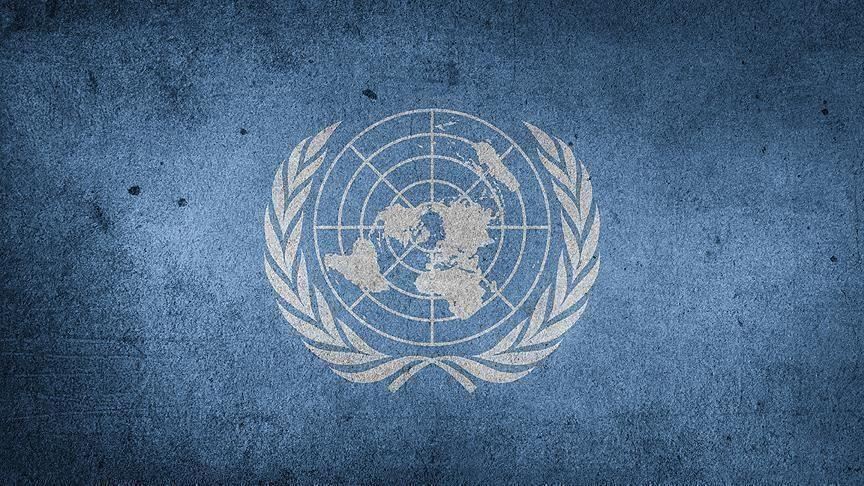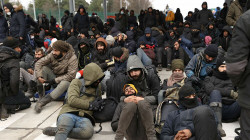Russia abstained.. UN votes for a resolution presented by Iraq on violent extremism after a long debate

Shafaq News/ The United Nations General Assembly on Wednesday declared February 12th the "International Day for the Prevention of Violent Extremism as and when Conducive to Terrorism" in a bid to raise awareness of the threats linked to that phenomenon.
The assembly invited all Member States, entities of the United Nations Global Counter-Terrorism Coordination Compact, and agencies of the United Nations system, as well as other relevant stakeholders, to commemorate the International Day in an appropriate manner.
The representative of Iraq, introducing that draft, said his country is one that has suffered the most from terrorist groups.
"The Iraqi Government is committed to international cooperation to eradicate terrorism, including through judicial accountability and victim support," a UN press release said, "Iraq is developing a national strategy in line with international developments and the Organization’s counterterrorism strategy."
The Assembly first held a debate on the plan of action to prevent violent extremism on 12 February 2015, he said, noting that the plan is the first United Nations document to make this issue a priority.
"The current resolution's priority is to raise awareness and bolster international cooperation on this matter," he said, underscoring that terrorism and violent extremism cannot be tied to any religion, nationality, or group of people.
Speaking in explanation of the vote before the vote, the representative of the Russian Federation said the coordinators of the text pushed it through without considering other proposals or holding extensive discussions. The text is deploying double standards for dividing terrorists into two categories of "the bad ones and the not-so-bad ones," he said, with violent extremists falling in the latter category.
Noting that 12 February was chosen to memorialize the adoption of Assembly resolution A/70/674 concerning the plan of action for preventing violent extremism, the Russian representative said this plan was an early attempt to institutionalize the idea of "prevention of violent extremism" by "watering down traditional counterterrorism".
"It is this ambiguous document that we're being asked to celebrate at the international level," he continued, adding that his delegation suggested the text should focus on the prevention of terrorism as there are clear binding instruments on that.
"It is not clear why the root causes of terrorism are being ignored by Iraq, a country which is regularly hit by terrorist attacks," he complained.
Speaking after the vote and explaining that his country's vote in favor was underpinned by its historical unwavering and categorical position against terrorism, the representative of Cuba reaffirmed that prevention of violent extremism or terrorism must not be used to justify violations of the United Nations Charter.
It is unacceptable, he stressed, that certain States engage in acts of aggression against sovereign peoples and commit flagrant violations of human rights and international humanitarian law under the flag of the supposed fight against terrorism.
"As terrorism cannot and should not be linked to any religion, nationality, civilization or ethnic group, the fight against it must be holistic, address prevention and eradicate root causes," he said.
Cuba's representative condemned "unilateral actions of certain States to certify politically motivated behavior" and "rejected the manipulation of terrorism into an instrument against other countries and reiterated his support for the adoption of a general convention against terrorism".
He then spotlighted his country's decades-long suffering from terrorist acts, namely those with the backing and support of the United States.
The representative of Egypt affirmed that his country's vote in favor does not change its views on the matter as a whole. His Government continues to be concerned by the absence of an internally agreed upon definition of violent extremism, the lack of a clear legal framework to govern violent extremism on the international and national levels, the general trend to use violent extremism to describe acts of terrorism committed by non-Islamic criminal groups and the concept's many uses, which erode the main responsibilities of countries to counter-terrorism, thereby causing an unnecessary misunderstanding of causes.
The 2015 Plan of Action to Prevent Violent Extremism, he added, was not the product of negotiations between countries and thus does not reflect consensus.
He then encouraged adding the term "conditions conducive to the spread of terrorism" wherever violent extremism is mentioned.
The representative of Iraq thanked all delegates who voted in favor of this resolution, which indicates the international community's intent to prevent terrorism.
"Unfortunately, one delegation requested a recorded vote, despite efforts to build a consensus," he said his delegation showed extreme flexibility, but its initiatives were rejected, and the only option was to ignore this resolution, which his delegation could not accept.
"The delegation is keen to cooperate with all to counter the threat of terrorism," he asserted.
The resolution numbered A/77/L.41 was finally adopted by a recorded vote of 154 in favor and none against, with four abstentions (Belarus, Congo, Madagascar, and Russia)





